Rowing Through the Noise: A Compass Star Wordsmith Highlight Reel
After years of wrestling with race, culture, and tribe, I saw the 2024 election coming, writing about the five elements of life that create culture. Compass Star Wordsmith is at the forefront of modern-day apocalyptic-dystopian future-thought. The disdain of conventional wisdom is paramount, as it never succeeds to prevent the last tragedy and always fails to prevent the next one. Join me on an adventure to the distant future.
When I hit publish on Multi-Racial in America on December 31, 2020, I was just a keyboard cowboy in the Lockdown at Covid Corral, sick and tired of riding hobby-horses of hostility in a social-media showdown. Substack set me free to set sail.
Multi-Racial in America
Over 6 million US adults could be considered multiracial by 2015. pew multiracial
Armed with said keyboard, a lifetime of scars, and a not-so-wild-eyed hunch, I set that sail on what would soon become Compass Star Wordsmith. Labeled Red Neck, White Skin, and Blue Collar at the outset, that moniker faded as fast as the faux rage. The feeling of independence, of individual liberty and personal freedom has existed since the birth of America. The Revolution gave us the ability to express our freedom. Substack gave us the capability to disseminate that freedom.
That purpose remained, and is currently at full sail, headwinds be damned! CSW, born from prison yards, multiracial family dinners, and a lifetime of crossing cultural lines, argues that race is a real but flimsy lens for understanding America. It’s our cultures—White Trash, Cowboy, Mexican, Prison, C-Level Executive, and a dozen others I’ve lived—that shape who we stand with, who we fight for. I pointed to Washington’s ragtag crew crossing the Delaware, each man a different shade, style, and story, yet rowing together to birth a nation. The 2024 election, with its gut-punch to "conventional wisdom," showed that hunch wasn’t just a shot in the dark. Voters didn’t play by the old rules of Red vs. Blue or Black vs. White—they rowed their own way, proving we’re more than the boxes we’re stuffed into.
Let’s take a word ride through the Compass Star Wordsmith archives to see how we got here, from that first post to the election that changed the game.
Multi-Racial in America (Dec 2020): The Opening Salvo
I kicked things off with a Pew stat that floored me: 6.2 million Americans identified as multiracial in 2018, 2.4% of adults, and that number was climbing fast. Floored because I’m sure it’s more, but this is self-identified and some still want/need to pass. My life backed it up. My own father was adopted as the baby of my teenage grandma I barely knew. His Hungarian step-father, a WWI vet and one of the most hard-core dudes I ever met, (he shot a rattlesnake with a pistol from behind me to save me) eventually ate a bullet after a tumultuous life still impacting later generations. Generational trauma was unknown but furthered.
I was married for 30 years to a Mexican-American woman, raising two daughters and a son from another mother. One daughter fair-skinned and Spanish-fluent, the other olive-skinned and not, and the son with an Native American-Mexican-White bloodline - we’ve lived the messiness of race. The redheaded eldest got tailed by mall security, mistaken for a runaway nanny’s charge; the brunette youngest got judged at the carniceria for “not being Mexican enough” because she doesn’t speak Spanish. The son gets mixed-messages from all corners - race traitor means what when you got three in the bag?
In prison, Whites with Latina wives are Nazi Lowriders. It’s hard to hide in a 6x9 bathroom. The reality of race is a minute-by-minute matter inside. On the outside, it’s performative art without a cause, earning useful idiots their title.
I wrote about my family’s cultural mashup: an English cousin on a tourist visa deported from TJ with an American paycheck stub in his wallet, my stepbrother and stepsisters, multiracial from my mom’s Hispanic husband and his Jewish ex-wife; my uncle’s white Jewish wife and their in-vitro children; my sister’s Austrian immigrant husband (illegal, for a hot minute). Race wasn’t the glue—it was culture, shared meals, music, arguments, love.
I argued race is an obsolete shortcut. It’s easier to judge skin than to wrestle with someone’s culture—Family, Surfer, Redneck, Bohemian, or Prison Culture that taught me survival trumps everything. I leaned on the image of Washington’s Delaware crossing: a boat full of misfits, no two alike, rowing through ice in 1776 to crush the Hessians and start America. That’s us, I said—not a race, but a crew united by purpose. The 2024 election was that boat reloaded. Voters didn’t sort neatly by color or class. Latinos swung toward economic populists; Black turnout defied party loyalty; working-class whites and browns voted for bread-and-butter issues over culture wars. The pundits, obsessed with racial checkboxes, missed it. We didn’t.
Our Adolescent-Forever Class (Apr 2022): The Tribal Pull
Our Adolescent-Forever Class
The great thing about getting older is that you become more mellow. Things aren't as black and white, and you become much more tolerant. You can see the good in things much more easily rather than ge…
In April 2022, I dug into why we’re stuck chasing youth—not just in skinny jeans but in how we form tribes. Our Adolescent-Forever Class was my love letter to Gen X’s scattered playlists, from Metallica to mariachi, reflecting the cultures I’ve lived: Cowboy, Stoner, Mexican, Blue Collar. I wrote that tribalism isn’t just race—it’s human nature, grouping us by shared vibes, not just skin. In prison, I saw guys band together solely by color, with the credo being no mixing of races. That post hit on something the 2024 election laid bare: voters weren’t just “white” or “Latino”; they were workers, parents, skeptics, fed up with elites who don’t get their grind. Exit polls (I’m no stats guy, but roll with me) showed cross-racial coalitions—truck drivers, nurses, small-business owners—voting for candidates who spoke to their daily hustle, not some demographic script. It was tribal, sure, but the tribes were fluid, built on shared fights, not fixed identities.
I tied it to culture: the Food (Menudo on Sunday morning at my ma-in-laws after smoked brisket the night before at the brother’s house), Music (Mana, Los Tigres del Norte, Los Lobos), Art (graffiti in the street, found objects in the yard), Craft (fixing a busted truck in the yard or flowers blooming out of a busted out old toilet), and History (immigrants like my great-grandparents and my ex-wife’s becoming Americans). That’s what binds us, not race. The election showed voters craving that connection—something real over the polished noise of campaign ads.
Morality for the Masses (Nov 2022): Survival Trumps Dogma
By November 2022, I was getting rawer. Morality for the Masses leaned on prison lessons: when survival’s on the line, moral lines blur. I quoted Five Finger Death Punch (“I stand for what I believe, even if I stand alone”), Thoreau on living deliberately, and Coolidge on persistence. In the yard, you aligned with who had your back—your own race. Black, white, brown, only race mattered. Ideology was a luxury; survival was the game. I saw that in my daughters’ lives too: the fair-skinned one navigating “not Mexican enough” jabs, the olive-skinned one dodging assumptions she’s a native Spanish speaker, the son demanded to choose racial sides.
They didn’t survive by clinging to race but by owning their cultures—Catholic roots on one side, Protestant on the other, Mexican heritage here, Native American recognition there, my redneck stubbornness and white trash upbringing over yonder. Those cultures blended together to create individuals capable of individual thought and action. Expressing that agency is the issue.
The 2024 election was that lesson on steroids. Voters didn’t care about party dogma or racial loyalty. They voted for what kept them afloat: jobs, safety, a shot at a better life. Maybe it was a candidate promising to fix supply chains or lower rent. Maybe it was someone who sounded like they’d been in the trenches, not a penthouse. The data’s fuzzy, but anecdotes from X posts I’ve seen suggest working-class voters—every shade—rallied around practical promises, not ideological purity. That’s what I meant in 2022: when the chips are down, we row with who’s pulling the oars, not who’s waving the correct flag.
Crossroads of Intersectionality (Feb 2025): Identity’s Breaking Point
Fast-forward to February 2025, just as the election dust settled. In Crossroads of Intersectionality, I tackled the fracturing of identity politics. The LGBTQIA+ movement’s “Alphabet Wars” showed how piling on labels—racial, sexual, cultural—can backfire, turning allies into rivals. I cited Pornhub’s 75% spike in transgender content views in 2022, not to shock but to show how people are wrestling with identity in ways that don’t fit old boxes. I argued we’re humans first, not checklists. My kids lives proved it: a daughter’s auburn hair and Spanish fluency didn’t make her “less Mexican”; the other’s olive skin didn’t make her a stereotype, the man-son embracing all sides of his family is not selling out. They’re all just… them.
The 2024 election was the breaking point. Voters didn’t line up behind “Black” or “Latino” or “white” candidates—they backed people who felt real. X posts from late 2024 buzzed with stories of multiracial voters—kids of interracial couples like mine—splitting tickets or staying home, fed up with being told how their “group” should vote. The “conventional wisdom” that race predicts politics? Dead. People voted as individuals, shaped by their cultures (Food: abuela’s chili rellenos; Music: hip-hop and country; History: immigrants building American lives). That’s what I’ve been writing about since 2020: we’re too messy, too blended, to be reduced to skin.
Open Letter to Gen-X: #7 - Authentic (Sep 2023): Keeping It Real
In June 22, I wrote to my Gen X crew, urging us to stay authentic in a world of performative noise. Open Letter to Gen-X: #7 - Authentic was about owning our scars—my prison time, my multiracial family, my zigzag through cultures—and not letting anyone else define us. I talked about the music that raised me (Charlie Pride, Bob Marley), the craft of rebuilding after failure, the history of scraping by. Authenticity, I said, is what cuts through tribal bullshit. It’s why I’ve always written about race and culture from various viewpoints, whether about my family’s run-ins with racism, my step-siblings Jewish-Mexican roots, or my lived experience in a prison racial hierarchy.
The 2024 election was authenticity’s victory lap. Voters sniffed out the fakes—candidates reading from scripts, pundits recycling tired narratives. They gravitated to voices that sounded like they’d lived a real life, not a focus-grouped one. Whether it was a populist outsider or a local hero, the winners were the ones who showed up as humans, not avatars of some demographic. That’s what Compass Star Wordsmith’s been chasing: the human under the noise.
The 2024 Election: Washington’s Boat, 21st Century
The election wasn’t just a vote; it was a reckoning. The pundits, with their spreadsheets and racial pie charts, got blindsided. X posts from November 2024 lit up with stories: a Latino mechanic in Texas voting for a tax-cutting upstart; a Black nurse in Georgia skipping the polls because “nobody gets it”; a white factory worker in Ohio backing a pro-union maverick. The numbers (I’m no pollster, but I read the vibes) showed Latinos trending right, Black turnout dipping, and working-class voters—every color—coalescing around do-or-die dilemmas: rent, gas, schools. It was Washington’s Delaware crew, 2025 remix—different faces, same mission: get to the other side.
Multi-Racial in America saw it coming. Race, I wrote, is a surface marker. Culture—our food, music, art, craft, history—is the current underneath. My family’s story (Protestant and Catholic roots, immigrants on both sides, mixed and blended homes) isn’t unique; it’s America. The election showed a nation too blended, too stubborn, to follow the old scripts. Like Washington’s men—freezing, arguing, rowing through ice—we’re a mess, but we can still pull together.
Where We Go From Here
Compass Star Wordsmith’s been a four-year experiment in cutting through the noise. With over 275 posts and 500+ subscribers, we’ve wrestled with what makes us human: our cultures, our fights, our need to belong. The 2024 election didn’t solve our divides—tribes are still tribes, class gaps still cut deep—but it showed we’re capable of more. We can row together, even if we’re yelling the whole way.
I keep coming back to that Delaware crossing. No two men in that boat were alike. They didn’t agree on God, politics, or much else. But they rowed. They crushed the Hessians, barefoot over ice, and built something new. Can we do that now? I think so, but it’s on us to keep it real—sharing meals, swapping stories, owning our scars. The election was a start, a signal we’re more than our skin or our zip code. Let’s keep rowing.
Ric
Thanks for sticking with Compass Star Wordsmith. This highlight reel’s for you—our crew. Share it, comment with your take on 2025, or subscribe to keep the fire burning. What’s one moment from the past four years that showed you who we really are? Tell me your culture—your food, music, history—and let’s keep this boat moving.




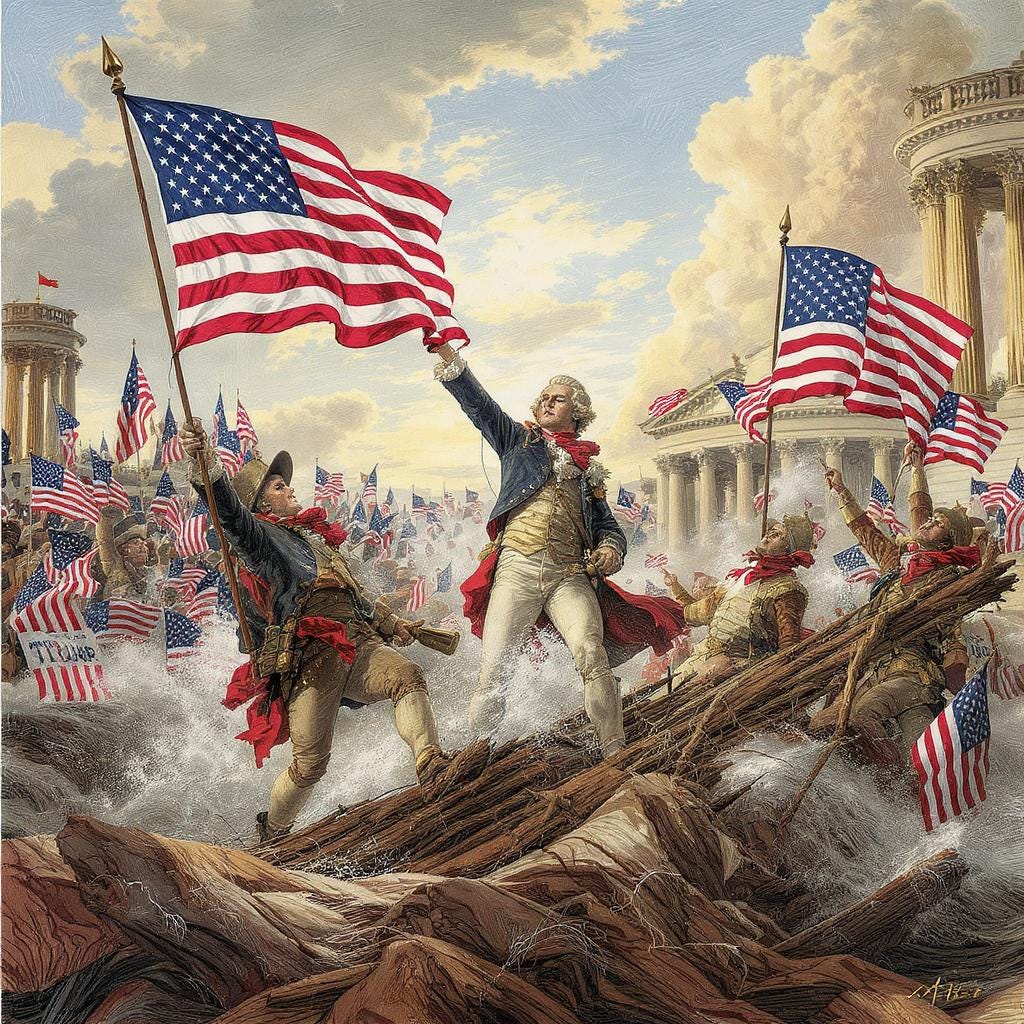
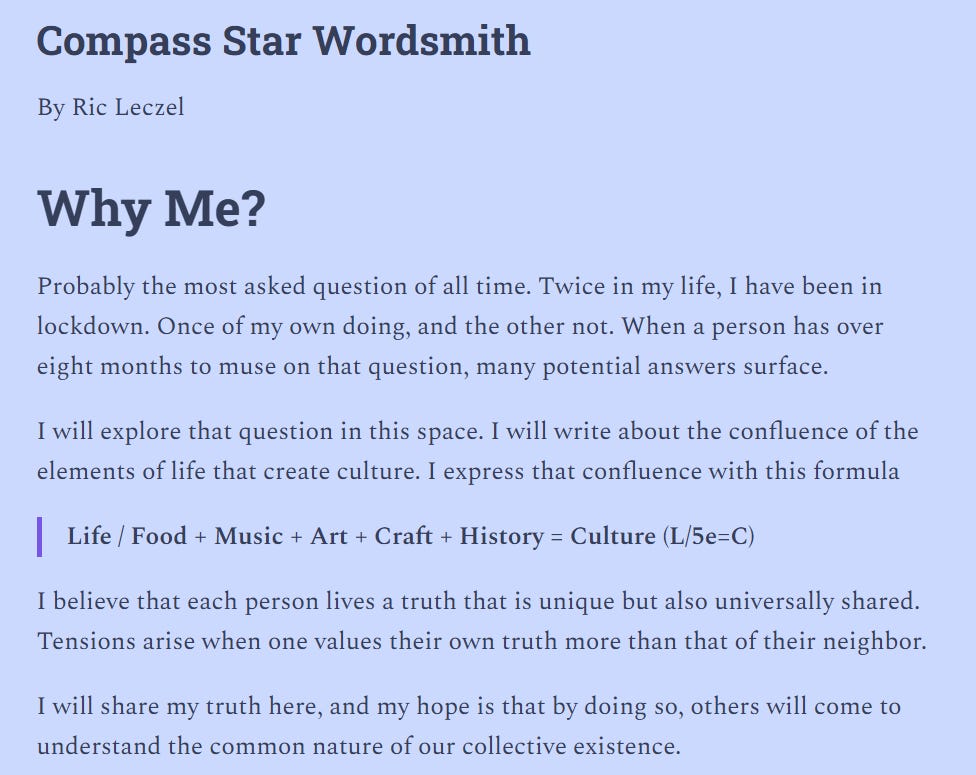

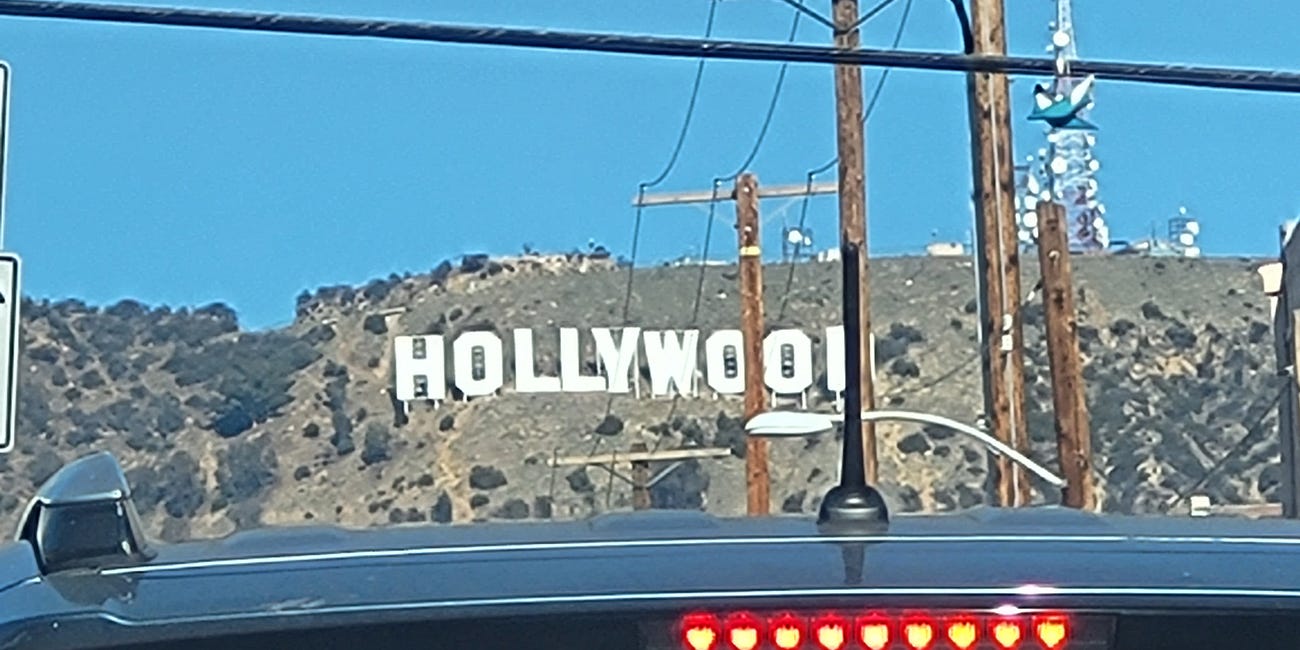
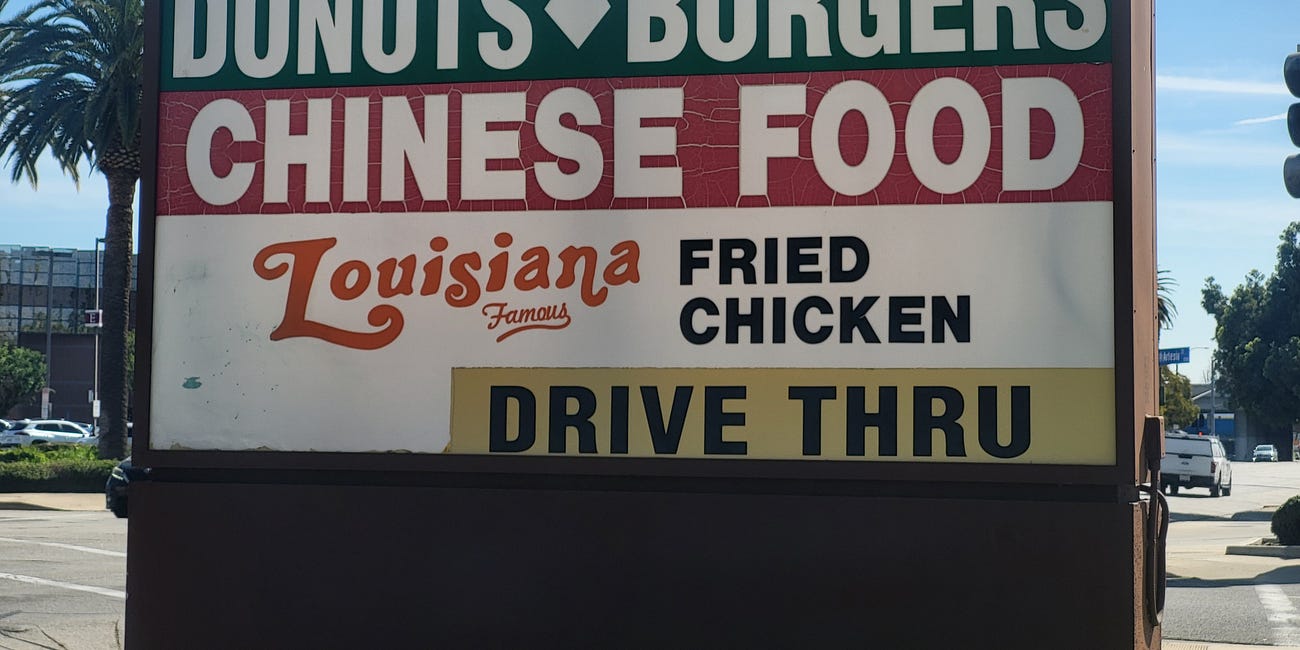

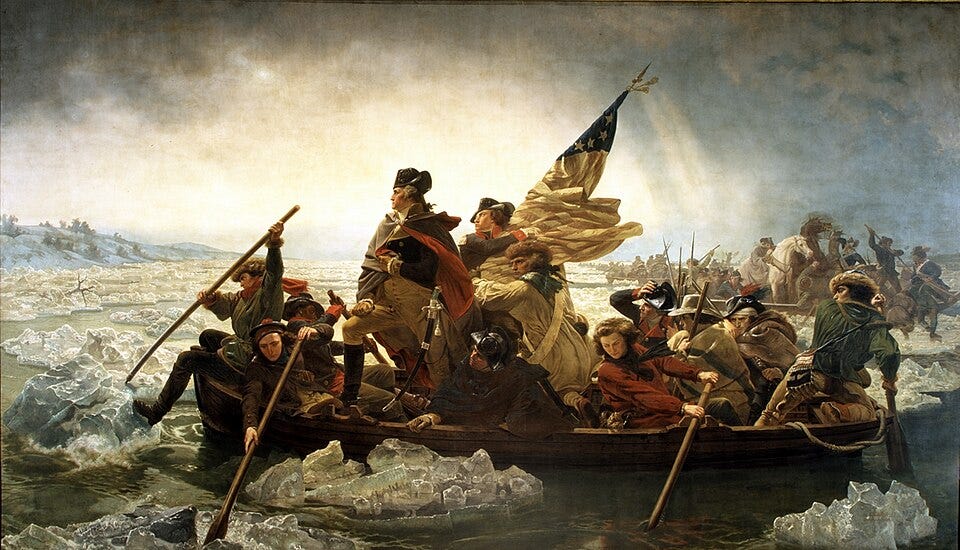
Nice review and context.